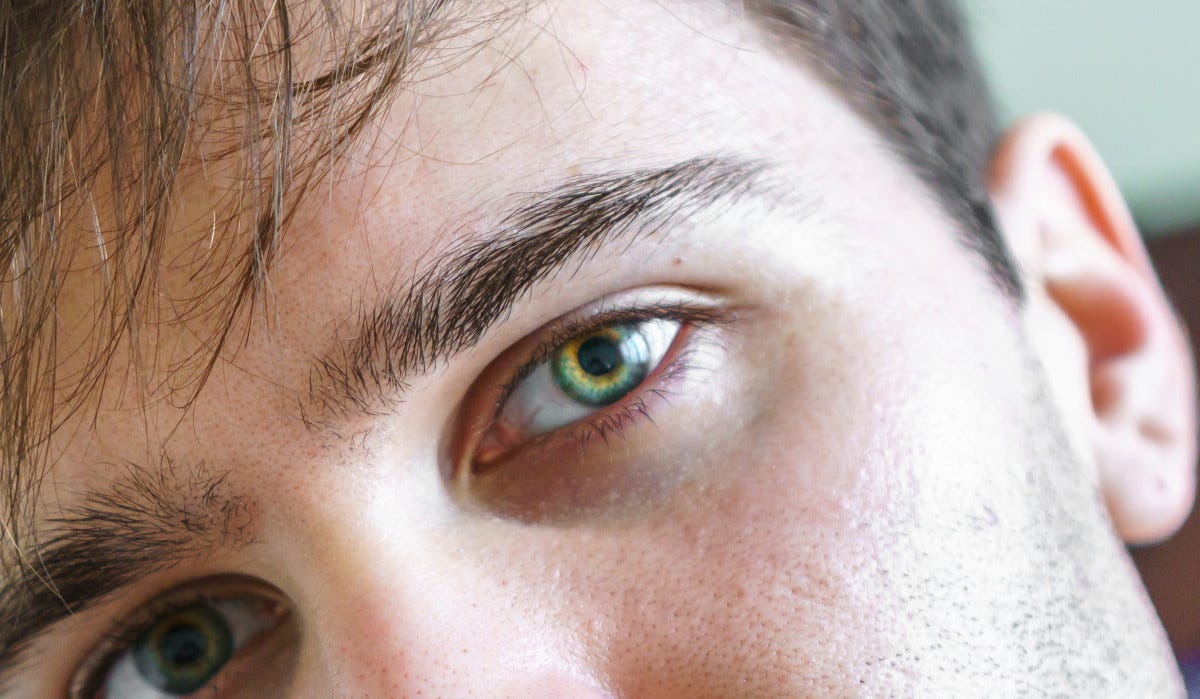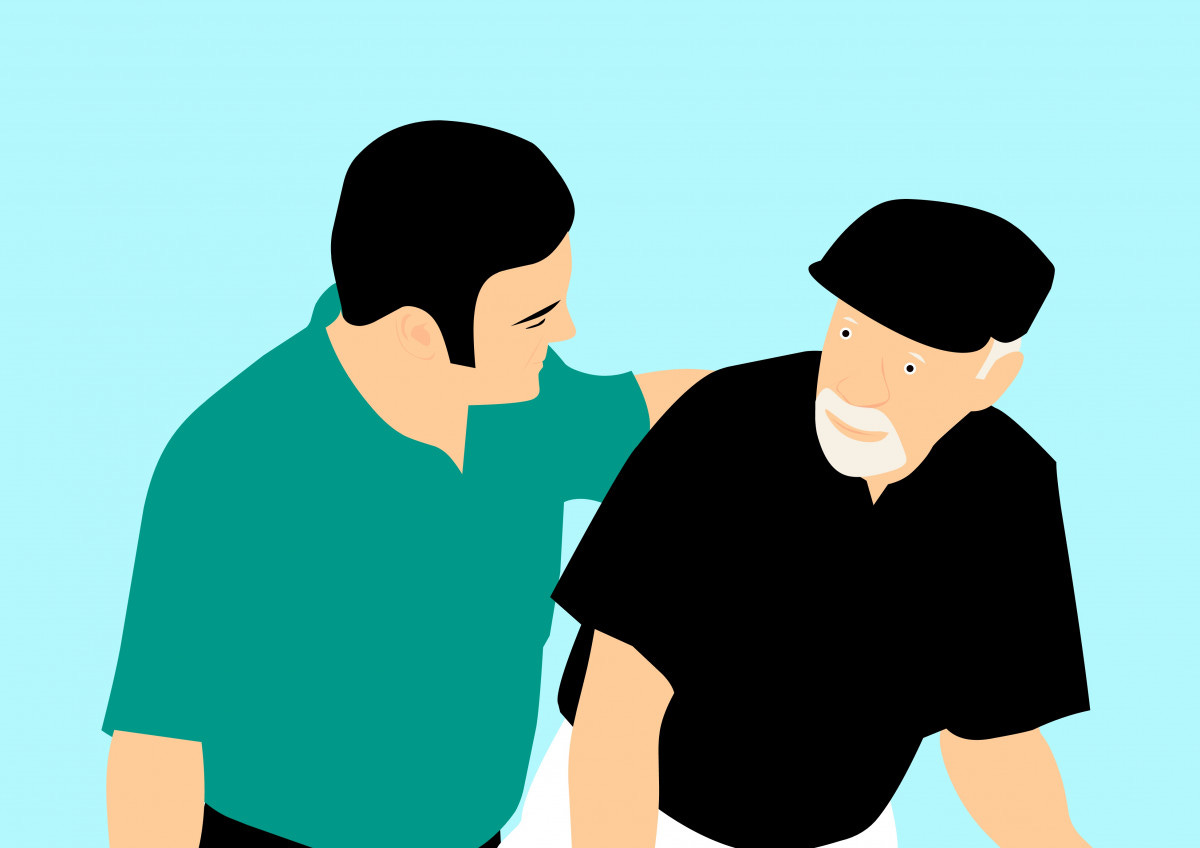Sci-Ed Update 348
Aphantasia explained, microbiota transplants may mess things up, music rhythm / brain rhythm, is Alzheimer disease transmissible?, pooping can kill, fluoridation, and more!
Men are shaving off their eyelashes on TikTok. Here’s why that might be a bad idea
Videos of men removing their eyelashes, by trimming or shaving, have been circulating on social media in recent weeks. This trend is based on the idea short eyelashes look more masculine.
Hair can tell us a lot about our social and cultural values. As the Canadian sociologist Anthony Synnott says, it can represent embedded ideas about biological sex, such as “opposite sexes have opposite hair” and “head hair and body hair are opposite”.
But do sex differences have any basis in biology? And what about the health risks of tampering with your lashes?
If the idea of a buzzing razor coming near your eyes makes you nervous, there’s good reason.
Read more→ AandP.info/cad6ec
Music Does Something Amazing to Your Brain's Own Natural Rhythms
Ever felt like a song really resonates with you? That may be more true than you think.
A new theory suggests that we don't just listen to it; our bodies physically resonate with music, as our brains' natural oscillations synchronize with structures like rhythm and pitch.
Music is often thought of as a 'universal language' – people across cultures will bust out similar moves, and young kids will instinctively bop to a beat.
According to neural resonance theory, it's not just that we learn to expect and predict what's coming; aspects like harmony in the music we make and enjoy sound so good to us because they're in sync with the brain's resonant patterns.
"This theory suggests that music is powerful not just because we hear it, but because our brains and bodies become it," says Caroline Palmer, neuroscientist at McGill University in Canada. "That has big implications for therapy, education, and technology."
Read more→ AandP.info/b3f516
Circular breathwork induces altered states of consciousness linked to improved mental health
Researchers from the Ernst Strüngmann Institute for Neuroscience, the MIND Foundation, alongside other collaborators, have found that reductions in carbon dioxide saturation during circular breathwork sessions were correlated with the emergence of altered states of consciousness. Altered states resembled those reported in psychedelic experiences and were associated with improvements in psychological well-being and reductions in depressive symptoms.
Read more→ AandP.info/db434e
How an unusual medical procedure transmitted Alzheimer’s
Alzheimer’s disease’s impact is growing as our population ages, but much of the disease’s pathophysiology remains unclear. A study published last year in the journal Nature revealed a significant new finding about Alzheimer’s disease–it could spread between individuals under unusual circumstances. The finding is one of several that link Alzheimer’s to rare prion diseases, a connection that could change how we prevent and treat dementia.
Read more→ AandP.info/6f8b88
Pooping Is a High-Stakes Event That Could Be Fatal For One Group
The humble toilet seems like the least likely setting for drama. Yet throughout history, it has claimed kings, toppled celebrities and served as the scene of untimely deaths ranging from the tragic to the downright bizarre.
What is it about the smallest room that makes it, occasionally, the most dangerous?
At the heart of this peril lies the Valsalva manoeuvre – the act of forcibly exhaling against a closed airway while straining, such as during defecation. This puts pressure on your chest, which reduces blood flow back to the heart.
For most people, it's harmless. But for those with heart problems, this strain can lead to "defecation syncope" (fainting), irregular heart rhythms and even sudden death.
Read more→ AandP.info/c4f5a0
The Poop Episode | Using Fecal Changes to Monitor Health
In The Poop Episode, host Kevin Patton applies stories from his experience monitoring digestive health in zoo and circus animals to human anatomy and physiology. We explore the frequency of defecation, and how to read poop for common health issues. This is the episode that tells you how to get an elephant to poop on command!
To listen to this episode, click on the play button above ⏵ (if present) or this link→theAPprofessor.org/podcast-episode-121.html
These countries don't fluoridate their water – here's why
Opposition to fluoride is spreading. The mineral was there, in the recent "Make America Healthy Again" report on childhood disease, among a long list of factors blamed for a crisis of chronic disease afflicting children in the United States.
Wellness influencer Calley Means, who is now an adviser to the US government, has called drinking water fluoridation an "attack on lower income kids" and suggested that parents should throw out their children's toothpaste if they find it contains fluoride. His views on fluoride appear to align with those of Robert F Kennedy Jr, the US Health and Human Services Secretary. His sister, Casey Means, is also Donald Trump's nominee to serve as the US Surgeon General.
Yet, ever since scientists noticed that people had lower rates of tooth decay in areas with naturally higher levels of fluoride in the water, in some areas it has been added to drinking water in an effort to improve dental health.
At the end of March 2025, however, Utah became the first US state to ban the use of fluoride in the public water supply. In early May, Florida Governor Ron DeSantis signed a bill into law that bans "certain additives" in the water system, which would include fluoride – ending a practice that dates back to 1949 in the state. And in April, Kennedy Jr announced that he would direct the US Centers for Disease Control and Prevention to recommend against fluoridating water and the Environmental Protection Agency is holding an urgent review of the scientific evidence on any potential health risks of adding fluoride to water.
Read more→ AandP.info/ffe21a
Gut Microbiota Transplants May Cause Long-Term Imbalance

New research warns that fecal microbiota transplants (FMT) can lead to long-lasting mismatches in gut regions, causing metabolic and behavioral shifts. While FMT aims to restore gut health by transplanting stool microbes from healthy donors, most microbes come from the colon and may colonize unintended regions like the small intestine.
This misplacement leads to “terraforming,” where microbes change tissue environments to suit their survival. The study urges caution and proposes a new approach—omni-microbial transplants—that better aligns microbes with their native gut environments.
Key Facts:
Microbial Mismatch: Colon microbes from FMT can colonize unintended gut regions like the small intestine, altering function.
Long-Term Effects: A single FMT caused persistent changes in metabolism, immune activity, and behavior in mice.
New Proposal: Researchers suggest omni-microbial transplants to match microbes with appropriate intestinal regions.
Read more→ AandP.info/8227a4
Aphantasia: Why Some Minds Are Blind to Images

Scientists have uncovered how the brains of people with aphantasia, those who cannot visualize mental images, process visual information differently. Although key visual and memory-related brain regions still activate during mental imagery tasks, they show weaker connectivity compared to individuals with typical visualization.
This supports the idea that the richness of mental imagery depends on how well the brain integrates signals across these regions. Despite their lack of internal visuals, aphantasic individuals retain strong visual knowledge, showing that mental imagery isn’t necessary for understanding or creativity.
Key Facts:
Aphantasia Defined: About 4% of people are unable to voluntarily visualize mental images.
Neural Connectivity: Aphantasic individuals activate similar brain areas during imagery tasks but with weaker network integration.
Functional Insight: Mental imagery quality depends on connectivity between attention, memory, and visual regions—not just activation alone.
Read more→ AandP.info/1de99d
Mindi Fried on Teaching & Learning with Aphantasia
In Episode 133, Dr. Mindi Fried joins us to discuss her experience of aphantasia, the inability to picture thoughts and memories in the mind’s eye, and how that affects how she teaches and learns anatomy and physiology. This is a chat that will increase our awareness of the huge and sometimes invisible diversity that exists among our students.
To listen to this episode, click on the play button above ⏵ (if present) or this link→ theAPprofessor.org/podcast-episode-133.html










